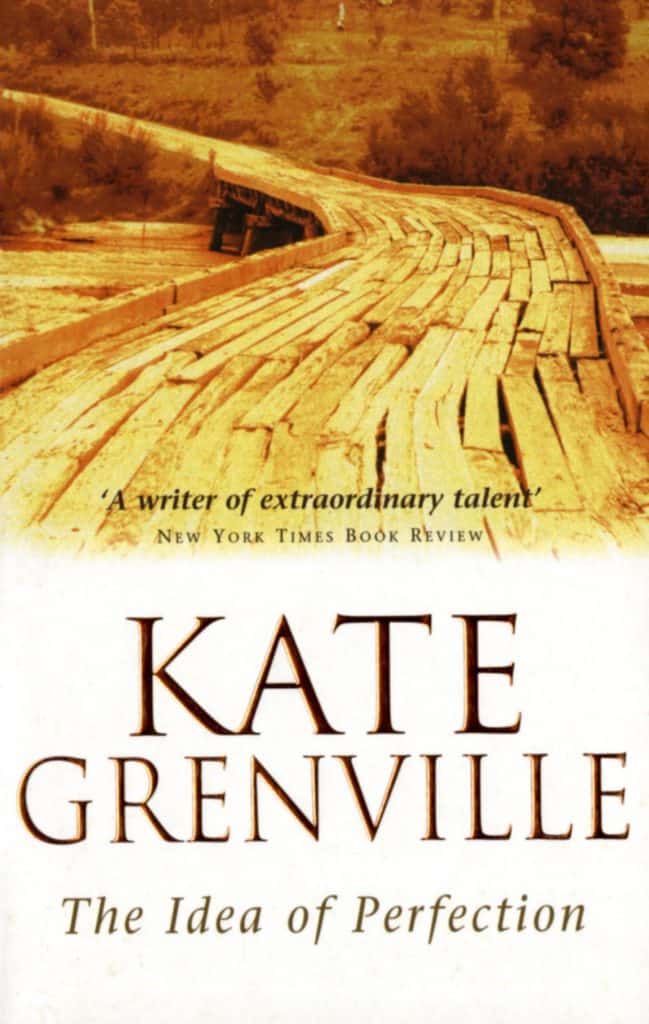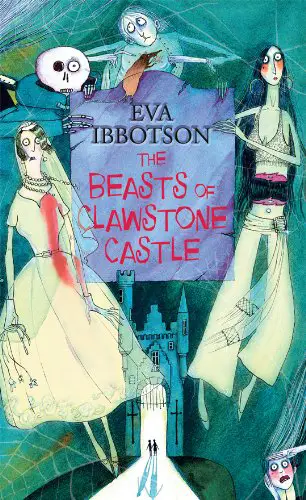ON PURPLE PROSE
Apart from the fact that certain types of writing demand flowery language — a subset of the romance genre being a case in point — there are other uses for the sort of prose which otherwise reads so beautifully that it draws attention to itself. Sometimes such language has the unintended effect of drawing the reader out of the story. At other times there is a reason for it.

This is the opening of Chapter 12 from Kate Grenville’s The Idea Of Perfection:
Out at The Bent Bridge, the men were having their smoko. They had got the fire going, twigs crackling under the billy, the flames invisible in the brilliant morning light. Smoke drifted away blue under the trees and turned the slanting sunlight into great organ-pipes of powdery light.
In a story set in the Australian bush, this paragraph almost seems out of place, with its excess adjectives (brilliant, blue, great) and alliteration (slanting sunlight) and its grandiose metaphor (organ-pipes) and original but tenuous use of ‘powdery’ rather than ‘dusty’. But the prose continues like this, with an abrupt change in tone:
The red-headed one they all called Blue opened his sandwich up, showing the flap of grainy grey devon inside. He had caught the sun across his bare freckled back and his eyes were bloodshot.
Er, yuk, he said, and peeled it off the bread.
It was stuck like wallpaper.
He flung it into the fire where it lay across a stick, curling, darkening, starting to sizzle. He stuck the two slices of bread back against each other.
It now becomes clear why the first paragraph had been so beautifully written: To contrast with the earthiness of the men working on the bridge.
The ‘red-headed one they all called Blue’ is an example of typically Australian irony, in which case colour is mentioned now for a different effect — to bring us back to the reality of ‘Australia’. The Australian-ness of this man is continued with the colour red — his freckles, his bloodshot eyes. There is no longer any glamour associated with adjectives of colour.
The devon sausage sounds even more disgusting than it is when contrasted against the ‘organ pipes of powdery light’, especially since ‘powdery’ is a word that could equally be used to describe devon, albeit with a completely different emotional outcome.
The dialogue, too, of ‘Er, yuk’ portrays unembellished laconic disgust, with its harsh ‘k’ sound.
‘It was stuck like wallpaper’ is another kind of imagery — a simile this time — but it has a quite different ring to it, because wallpaper is such an ordinary thing found in old houses, whereas ‘organ-pipes’ conjures up a cathedral with its high ceilings, spirituality and melodious sounds.
Next we have the colloquial verbs of ‘flung’ and ‘stuck’; Germanic-derived words which emphasise the harshness of the environs.
All of this works much better, of course, because it occurs in opposition to a flowery opening paragraph, which shows off the author’s flair for language, but with an end in mind… other than showing off.
ON PLAIN PROSE

Critique groups will often advise beginning writers to avoid meaningless adjectives such as ‘nice’ and ‘good. But again, sometimes these adjectives are used for a reason. Take the following introduction to the heroes of The Beasts of Clawstone Castle, by Eva Ibbotson:
The children lived in a ground-floor flat in a pleasant part of South London. Their parents were funny and clever and nice, but they were apt to be a little bit frantic because of their jobs. Mrs Hamilton ran an experimental theatre which put on interesting plays but kept on running out of money, and Mr Hamilton was a designer and had to have good ideas about what people should do with their houses.
- The parents are not important to the story. The author’s job at the beginning of the story is simply to get them out of the way. If the author were to give examples of ‘funny’ and ‘clever’ and ‘nice’ then the story would be about the parents and the action would be suspended.
- The repetition of these fairly meaningless adjectives underscores the fairly meaningless lives our protagonists lead at the beginning of the story. Since their lives are uneventful and their home is sheltered, the only way they will grow as people is by leaving their secure and uneventful environment to go on an adventure elsewhere.
I beg the privilege of demurring for a few moments against a high-flown disdain for the adjective. We’ve been cautioned by such proven masters as Ernest Hemingway, Clifton Fadiman and Mark Twain, to avoid the adjective as though it were a contagious disease. Here’s Fadiman:
“The adjective is the banana peel of the parts of speech.”
Mark Twain: “As to the adjective, when in doubt, strike it out.”
Hemingway: “If an adjective happens, kill it.”
All of which seems to me a bum rap against the language enjoyed worldwide by people who use a homely but sturdy adjective every day, billions of us: “good morning, good afternoon, good evening, good night” in all the languages of our polyglot world; and, by way of reinforcement, most of us rely on convenient adjectives such as “passable, great, terrific” or “lousy.” Not to speak of the bonhomie generated worldwide around Christmas; and by the pleasant modifier in happy New Year.
Norman Cowin
